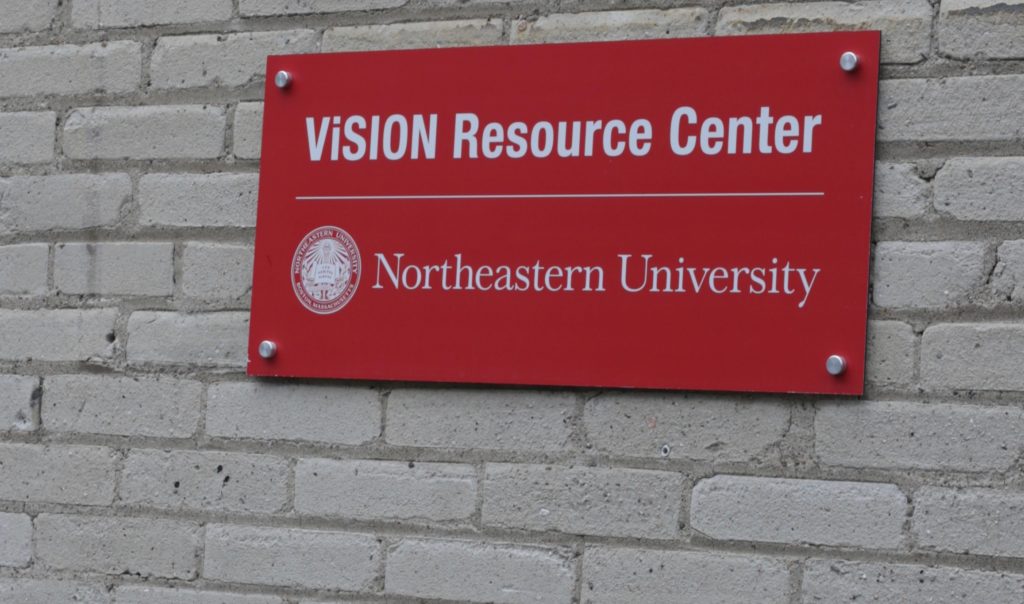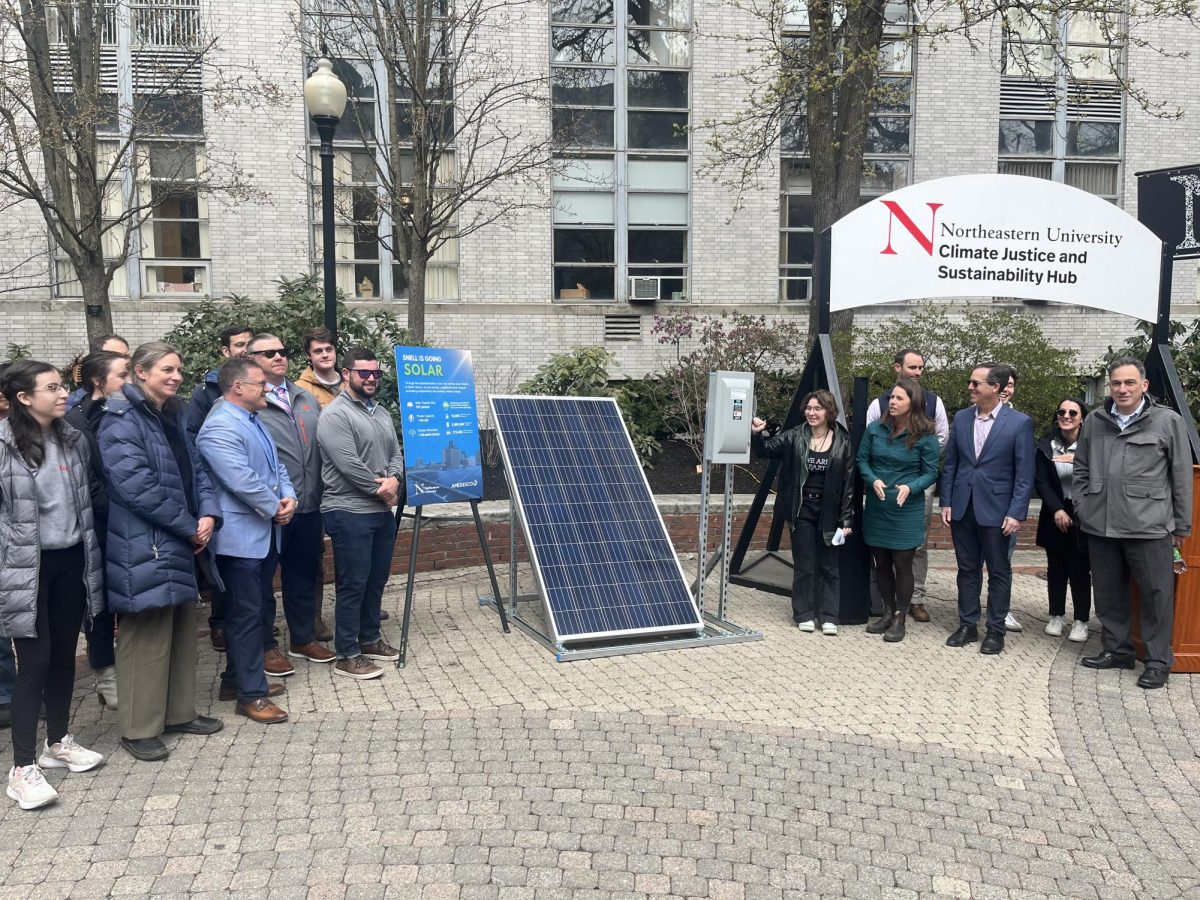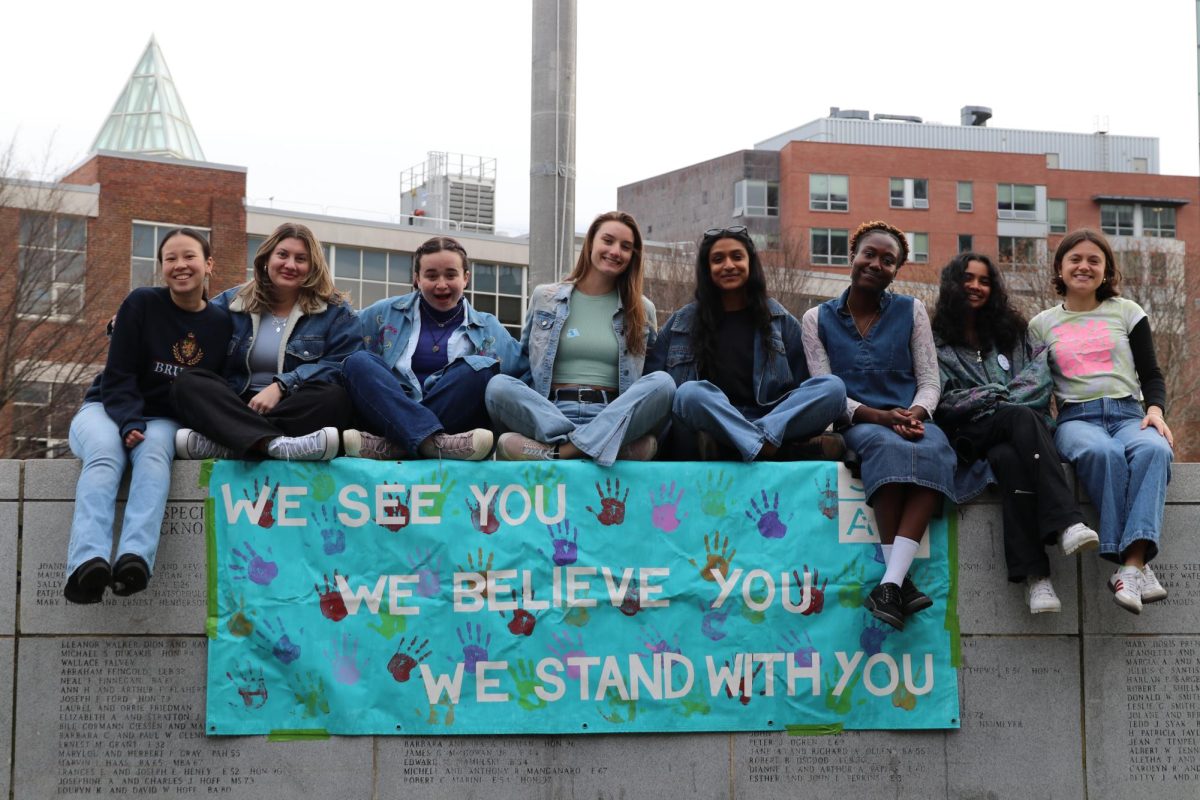By Emily Sandstrom, news correspondent
Staff at two sexual violence resource centers on campus are no longer required to report sexual assault to Northeastern’s Title IX office, Northeastern’s administration announced recently.
Initially proposed last year by a staff member at the Office of Prevention and Education, or OPEN, the decision affects the Violence Support, Intervention and Outreach Network, or ViSION, as well as OPEN. Previously, staff members at University Health and Counseling Services, or UHCS, and the Center for Spirituality and Dialogue Service, or CSDS, were the only two resources on campus to for students who wanted to report their experiences with sexual violence confidentially.
“We have implemented a new policy that all OPEN staff who are available at the ViSION Resource Center will now be confidential resources,” Renata Nyul, Northeastern’s vice president of communications, said in a Feb. 22 email to The News. “Similar to the UHCS staff and Northeastern’s spiritual advisors, they will not be required to report an incident disclosed to them by a student.”
Allegra Mangione, the president of the Sexual Assault Response Coalition, or SARC, a student group focused on the resources and rights of sexual assault survivors on campus, said UHCS and CSDS are very limited resources.
“We know that at the UHCS is really difficult to get an appointment, and also there is a lack of trust between students and UHCS counselors, so that’s not really a viable option for all students,” said Mangione, a fifth-year human services and international affairs major. “And then spiritual advisors, while being a wonderful resource for students who practice faith and feel comfortable in that sort of community, not all students feel comfortable reporting to them.”
Jenna Malley, a member of Husky to Husky, a group run by OPEN and ViSION that raises awareness of mental health resources that are available for the Northeastern community, further explained the limitations of the CSDS and UHCS as resources.
“Most people don’t know about the spirituality advisors at the CSDS, and a lot of people are too afraid to go the UHCS and talk about something like that, so I think having ViSION and OPEN as another resource that isn’t a religious affiliation or this very stigmatized thing is much better,” said Malley, a fifth-year chemistry major.
Mangione said having the OPEN staff members as a resource is a benefit for students.
“Now there is a middle ground for students who may want to have a confidential report and learn about resources and talk — they now have another option,” she said. “The hope is that more people will feel comfortable reporting.”
Students wishing to talk discreetly about their trauma can expect professional treatment from staff members at OPEN, who Nyul said are specifically trained to work with victims of sexual assault.
“The OPEN staff are licensed clinical social workers, master’s level public health professionals or graduate students who have been extensively trained in trauma-informed response, resources available on and off campus, as well as the Title IX reporting process,“ she said.
Students will also be appointed formal case managers if they choose to go through the Title IX process.
“It’s really exciting. What we’ve been asking for is more confidential resources. We didn’t specifically ask for OPEN to be confidential, but within OPEN there are several folks whose job is to work directly around sexual violence,” Mangione said. “When OPEN let us know they had submitted the proposal, we asked where can we be of help, can we show that there is support for this and would that help the process move faster.”
Malley also supports the administration’s change.
“I think this is very positive,” she said. “A lot of people when they’re in crisis-mode don’t really know where to go, and if they hear that they can go to this space to talk about it, their first question is not going to be, ‘Are they mandated reporters?’ because unless you’ve been in a situation you’re not going to know what a mandated reporter is.”
Despite the changes made by the administration, Mangione said there is still more work to be done.
“It’s great that OPEN staff members are confidential but it still remains that the ViSION resource center is only open from 12 to 5 [p.m.],” she said. ”There is not always a confidential person to report to there, and also even though they can act as an advocate for survivors, if they decide to report on and go through a Title IX application process, it’s not their primary role.”
Another issue is making students aware of the new resource that they have access too.
“The challenge now is making the student body aware that this is an option,” Mangione said. “One thing that I think SARC would like to see is more marketing geared toward that,” she said.














